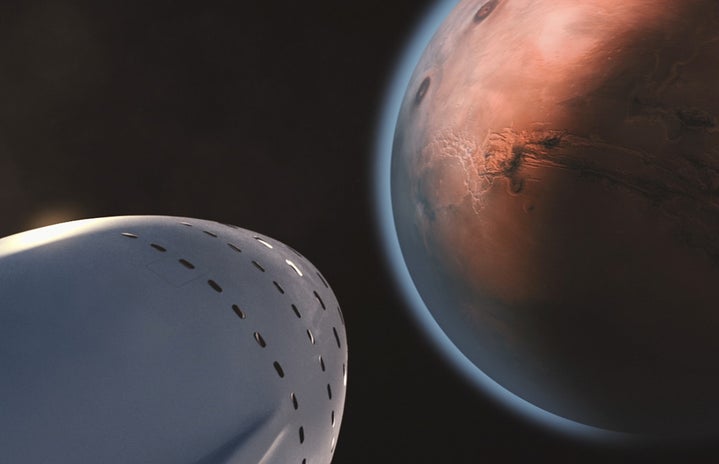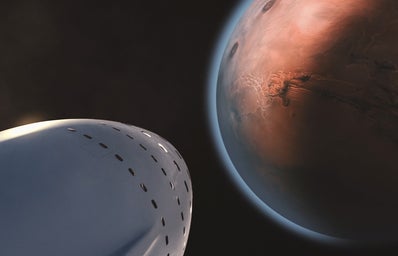From the helm of U of T’s Convocation Hall, Dr. Michael Reid has been immersing thousands of non-science undergraduates in the world of black holes and supernovas for the past six years. Renown for his ability to make the dreaded Group 5 Breadth Requirement as painless as possible, Dr. Reid effortlessly shares his passion for the wonders of the universe with both the science enthusiasts and the self-proclaimed ‘scientifically inept.’ And like the ever-expanding universe, it seems as though his interests are limitless; when he’s not commanding a colossal lecture hall, Professor Reid has been learning Mandarin here at the university, as well as conducting research on education and the underrepresentation of women in astronomy. This week, I was lucky enough to sit down with U of T’s star professor (no pun intended) and learn more about his teaching experiences, as well as those interests that are “near and dear to [his] heart.”
It seems like you’ve had your fair share of challenges and interruptions in Convocation Hall, including a student who made increasingly loud meowing noises in the middle of lecture (http://imgur.com/g2dLH), frat pranks, and boyfriends serenading girlfriends on the guitar. How do you deal with these types of challenges?
One thing I’ve learned in Con Hall is that you just have to expect it—somebody has just had too much caffeine or maybe is a little tipsy…it’s just part of life. The important thing is to maintain a sense of humour and remain personable. The funny thing is, that guy on the guitar wasn’t even her boyfriend—I spoke to that student after class and she said she had no idea who he was.
Though many students take AST101, AST201, etc. for a breadth requirement, what else do you think they might get out of learning about astronomy? Why do you think it is important, if at all, to teach astronomy to students who aren’t otherwise pursuing it seriously?
What I mainly want them to have is a sense of the universe—that earth is a tiny, tiny, tiny planet…it’s impossible to even communicate how tiny it is! Our egocentric and Earth-centric view of the world is not accurate, and I want them to stop thinking that life ends one foot above their head. We also want people to be basically, scientifically literate. If they come across a new discovery in the paper, we hope that they will have the ability to know what it’s talking about. I think that’s very important, and that goes in the other direction, as well; I believe that it’s equally important to educate science students in the humanities for the same reason.
Can you tell me a little bit about your research interests?
My scientific research focuses on star formation. I study how great big clouds of gas and dust turn into stars by using radio telescopes that pick up radio waves from space. I’ve also been doing research on how undergraduate non-science students learn science, but my colleagues and I don’t understand it very well yet; it’s harder than doing astronomy because people are a lot more complicated than stars! I’ve been doing a little bit of research on minorities in science, as well. The fractional representation of women in astronomy is appallingly low: though 55% of undergraduates are women, they only make up 20% of professional astronomers. By this coming January, the total number of female astronomy professors at the University of Toronto will be one.
Has your research led you to any tentative conclusions as to why that still is?
We know that what’s going on is called a ‘leaky pipeline’; at every step along the way—from high school to undergrad, from grad school to professional positions—the fraction of women goes down. And while there is no open, formal discrimination against women in this area, there is an implicit bias that tends to keep women out. Interestingly enough, [certain tests indicate that] women are implicitly discriminating against women at the same level as men. A study took the same resume, put a female and male name on it, and people were asked to rank them as a job candidate. Surprisingly, both men and women ranked women lower despite the fact that it was the same CV. We’ve yet to figure out why this is, but it seems to be a much deeper issue.
And lastly, what inspired you to pursue your research on the underrepresentation of women in the first place?
Both of my undergraduate and PhD supervisors were women, so those were interesting formative experiences for me at a relatively young age. And it has always really bugged me that you look around and see this departmental culture that is dominated by a certain way of thinking and a certain way of socializing. In some countries, there is still very much an ‘old boy’s club’ mentality in the hard sciences. It’s really annoying, and it’s not fun to work in an environment where the deck is stacked against people who don’t like working that way. In the past, women with relatively little experience in astronomy made amazing discoveries. They were hired because their labour was cheap, but they were not eligible to go on to get big careers. Cecilia Payne-Gaposchkin figured out what the sun was made out of; Annie Jump Cannon figured out a classification system for stars; and Vera Rubin discovered dark matter. If no one had hired these women, what would astronomy be like today?
As we wrap up our conversation, I realize that not much has changed since I sat in Convocation Hall two years ago, engrossed in Professor Reid’s quips, stories, and anecdotes that always managed to take our class on an adventure. And while I’m not entirely sure, I think I have a good idea as to why he manages to draw in such wide audiences time and time again: for, while he is beyond knowledgeable, Professor Reid emanates a sense of curiosity and wonder for the world around him, and pursues this curiosity through his personal and professional work on a daily basis. This is something I think we as students both admire and relate to, and it’s also the reason why we’re here—to pursue our passions, question our surroundings, broaden our horizons, and, if I may, to “go where no [wo]man has gone before.”

